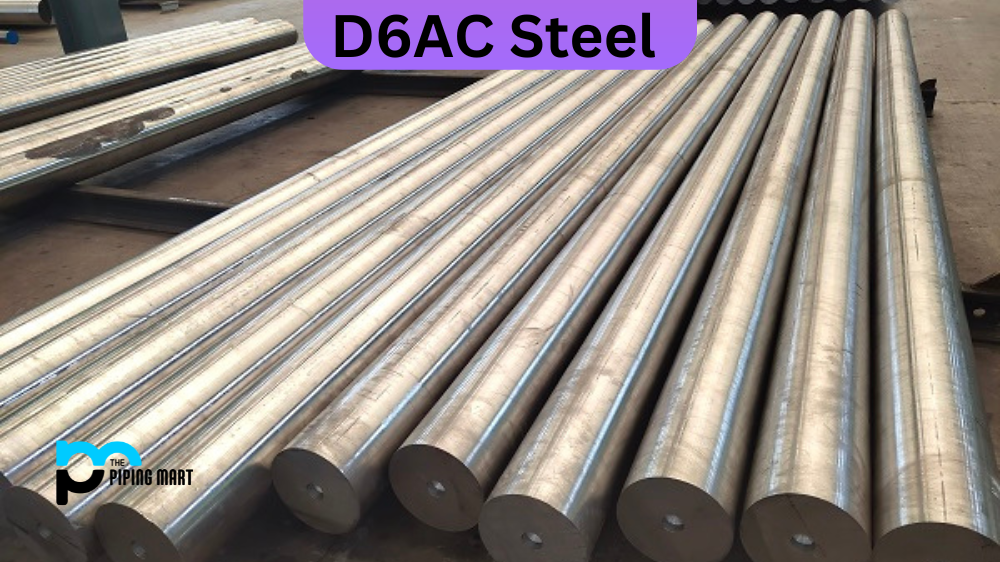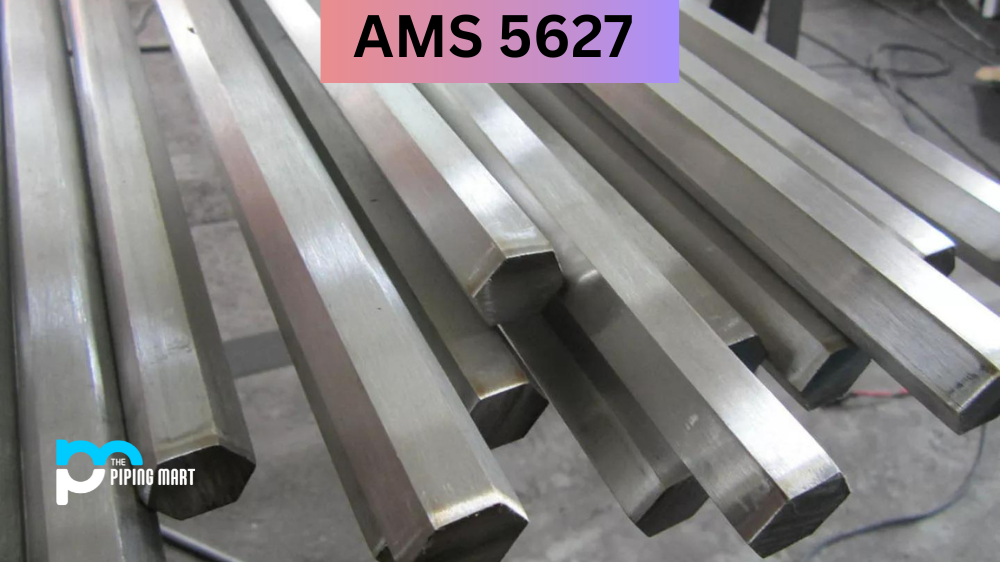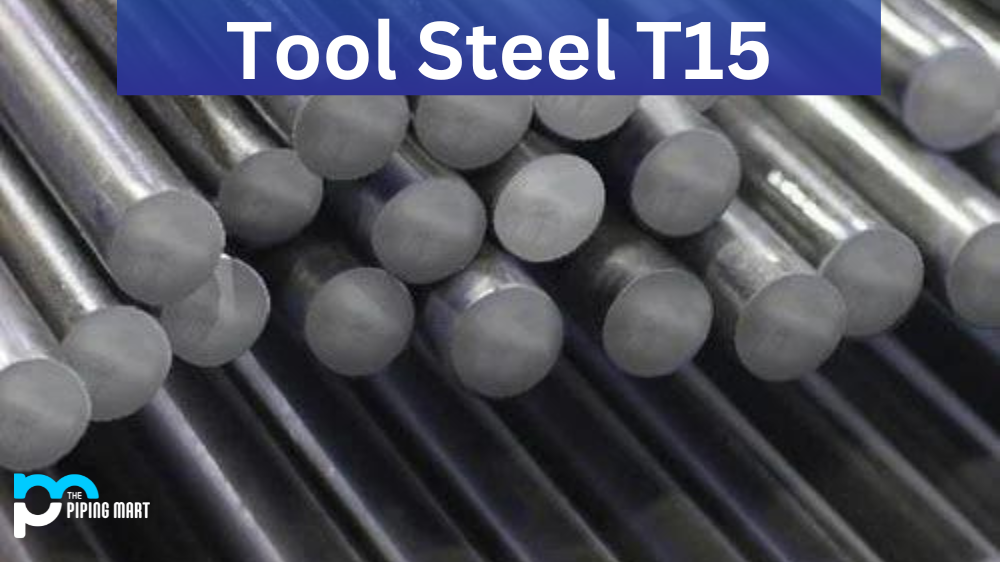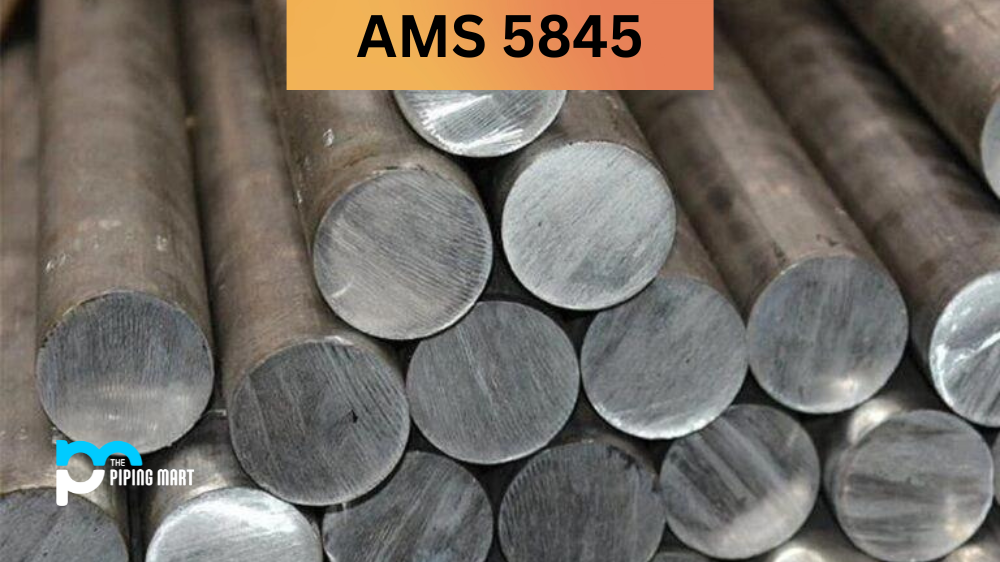Steel is widely used in various structural and mechanical applications, with different types developed to meet specific needs. One type of steel known for its exceptional strength and toughness is D6AC steel. This high-strength alloy steel is used extensively in the aerospace, defence, and automotive industries. This blog post will delve deeper into the composition, physical and mechanical properties, uses, hardness, heat treatment, welding, and corrosion resistance of D6AC steel.
D6AC Steel Composition
D6AC steel is a low-alloy steel comprising carbon, manganese, chromium, molybdenum, vanadium, nickel, and tungsten. Combining these elements gives it a unique composition that enhances strength, toughness, and wear resistance. The carbon content of D6AC steel is typically around 0.35%, while chromium and molybdenum contents are about 0.8% and 0.25%, respectively. The nickel content ranges from 1.65% to 2.0%, while vanadium and tungsten are typically between 0.05% and 0.15%.
| Chemical Composition Limits | |||||||
| Weight% | C | Si | Mn | Cr | Ni | Mo | V |
| D-6AC Vac Melt N&T | 0.46 | 0.25 | 0.75 | 1.10 | 0.60 | 1.00 | 0.10 |
D6AC Steel Physical Properties
D6AC steel has excellent physical properties make it suitable for high-load and high-stress applications. It has a density of around 7.85g/cm³, a melting point of approximately 1,425°C, and a thermal conductivity of 29.5 W/m.K. The alloy’s electrical conductivity is negligible due to its high alloy content.
D6AC Steel Mechanical Properties
D6AC steel’s mechanical properties are among the best of all high-strength alloy steels. It has a tensile strength of 1,380 MPa, yield strength of 1,128 MPa, and an elongation of 11%. The alloy’s unique microstructure enhances its resistance to fatigue, stress corrosion cracking, and wear and tear.
| Material | Tempering Treatment | Ultimate Tensile Strength (Mpa) | 0.2 % Yield Strength (Mpa) | % Elongation | % Reduction of Area | Hardness HRC |
| D6AC VAC ARC | 316°C (600°F) | 1931 | 1724 | 7 | 23 | 53 |
| D6AC VAC ARC | 510°C (950°F) | 1572 | 1345 | 7 | 25 | 46 |
| Heat Treatment before temper. A ustenitized at 1650°F (899°C). Oil quenched and air cooled, or salt quenched at 400-425°F (204-218°C) for ten minutes and air cooled | ||||||
D6AC Steel Uses
D6AC steel is used in various structural and mechanical applications due to its strength and toughness. Its applications include:
- Aircraft landing gear.
- Engine components.
- Helicopter rotor hubs.
- Missile parts.
- Automotive racing components.
- High-stress knife blades.
The alloy’s high strength and wear resistance make it ideal for durability and tough applications.
D6AC Steel Hardness
D6AC steel is a high-strength alloy, typically resulting in a hardness between 255 and 300 Brinell. Its hardness can be further increased through heat treatment, which enhances its strength and toughness.
D6AC Steel Heat Treatment
D6AC steel can be heat-treated to further enhance its strength and toughness. It can be hardened through oil quenching at 1700°F or water quenching at 1600°F. After hardening, the alloy can be tempered at different temperatures to achieve different hardness levels and mechanical properties.
D6AC Steel Welding
D6AC steel is moderately weldable and can be welded using standard welding techniques such as gas tungsten arc welding (GTAW) and gas metal arc welding (GMAW). The welding process might require additional heat treatment to restore the mechanical properties of the steel in the heat-affected zone (HAZ).
D6AC Steel Corrosion Resistant
Due to its high alloy content, D6AC steel has superior corrosion resistance to standard carbon steel alloys. However, it is not entirely immune to corrosion and can rust when exposed to acidic or caustic environments.
Conclusion
D6AC steel is a high-strength alloy made of carbon, manganese, chromium, molybdenum, vanadium, nickel, and tungsten. It is known for its excellent physical and mechanical properties, including strength, toughness, and wear resistance. The alloy is used in various structural and mechanical applications, including aircraft landing gear, engine components, missile parts, and high-stress knife blades. Additionally, D6AC steel can be heat-treated to enhance its hardness and mechanical properties, and it is moderately weldable using standard welding techniques. Though it is more corrosion-resistant than standard carbon steel, it can rust when exposed to acidic or caustic environments. D6AC steel is a versatile and highly durable material that can withstand high loads and stresses, making it a popular choice in various industries.

Meet Bhavesh, a seasoned blogger with a wealth of knowledge and experience. From metal products manufacturing to retail, Bhavesh has a diverse background in various industries and is dedicated to sharing his insights and expertise with readers.




